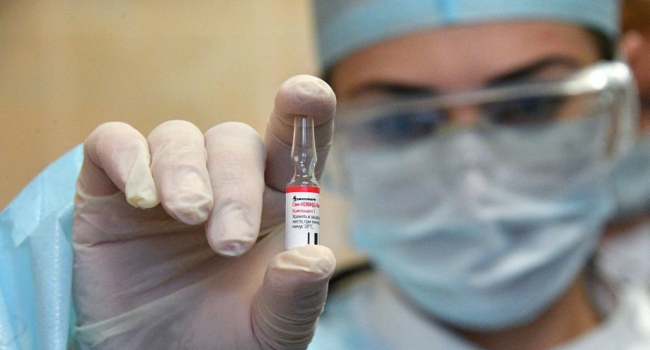- Latest news▼
-
13:11, May 8 Nature Medicine: Alzheimer's risk reaches 95% in elderly with 2 copies of APOE4 gene, study finds

-
10:39, May 8 The Telegraph: AstraZeneca withdrawing Covid vaccine amid lawsuit

-
22:36, May 7 Woman left in 17-day coma ‘burning from the inside out’ after taking ibuprofen for period pain

-
18:44, May 7 Car interior materials emit harmful substances suspected to cause cancer - study

-
16:47, May 7 Daily Mail: eating nuts and seeds can reduce risk of cancer and heart disease

-
14:52, May 7 Red, highly processed meat increases risk of cancer, experts say

-
08:38, May 7 Human brain is getting bigger, scientists believe this could help reduce risk of dementia

-
16:38, May 6 Daily Mail: decaf coffee is high in fibre

-
15:26, May 6 Ministry of Health of Armenia: Laboratory-confirmed measles cases increased by 27 compared to the previous week

-
14:41, May 6 MedicalXpress: Diabetes drug lowers COVID-19 viral load 4-fold, study finds

-
08:27, May 6 Researchers determine how physical activity affects women's health in middle age

-
18:15, May 4 What role does diet plays in the treatment of bipolar disorder?

-
10:52, May 4 Scientists identified dangerous health effects for families with gas cookers in their homes

-
12:36, May 3 Smoking during pregnancy may lead to obese children, study finds

-
10:29, May 3 Scientists discover cell responsible for repairing damaged liver tissue

All materials
Why is Brazilian COVID-19 strain dangerous?

The new Brazilian strain of COVID-19 is 2 times more infectious than other strains of the virus, a new study reported, published in the journal Science.
At the end of 2020, the Brazilian city of Manaus saw a new increase in the incidence of COVID-19, although the virus was widespread in this area before. Genome sequencing of 184 virus samples taken between November 2020 and January 2021 showed that a new variant, P.1, began to spread in Manaus, characterized by 17 amino acid substitutions, 3 of which affected the spike protein. These mutations - K417T, E484K, and N501Y - have the potential to strengthen the binding of the viral protein to the ACE2 receptor on the surface of human cells, helping the virus to enter.
According to scientists, the new strain has been first recorded around mid-November 2020. At the same time, the infectivity of P.1 is increased by 1.7-2.4 times, and the protection against it in people who have been ill is reduced by 21-46% compared to protection against other strains. Preliminary data point to a 1.2-1.9-fold increase in mortality, but it's hard to say yet whether this is due to changes in the virus or an increased burden on the city's healthcare system.
The P.1 line is now rapidly spreading across Brazil. It has also been found in over 36 countries. According to scientists, urgent research is needed to evaluate the effectiveness of existing vaccines against the new strain.
Follow NEWS.am Medicine on Facebook and Twitter
- Video
- Event calendar
- Archive
- Most read
month
week
day
- Sixth Armenian International Ophthalmological Conference will be held on 17-19 May 1534
- NBR: low to moderate intensity exercise protects against depression 1390
- ВJN: High-fat foods may increase the risk of heart attack and stroke at a young age 1306
- Armenia joins Council of Europe convention on protection of patients' rights 1283
- Scientists discover cell responsible for repairing damaged liver tissue 1274
- Smoking during pregnancy may lead to obese children, study finds 1268
- Patterns: Neural network created that models outcome of various patient therapy methods 1225
- Scientists identified dangerous health effects for families with gas cookers in their homes 1195
- What role does diet plays in the treatment of bipolar disorder? 1087
- MedicalXpress: Diabetes drug lowers COVID-19 viral load 4-fold, study finds 844
- Researchers determine how physical activity affects women's health in middle age 662
- Daily Mail: decaf coffee is high in fibre 646
- Ministry of Health of Armenia: Laboratory-confirmed measles cases increased by 27 compared to the previous week 628
- Red, highly processed meat increases risk of cancer, experts say 509
- Human brain is getting bigger, scientists believe this could help reduce risk of dementia 458
- Find us on Facebook
- Poll





